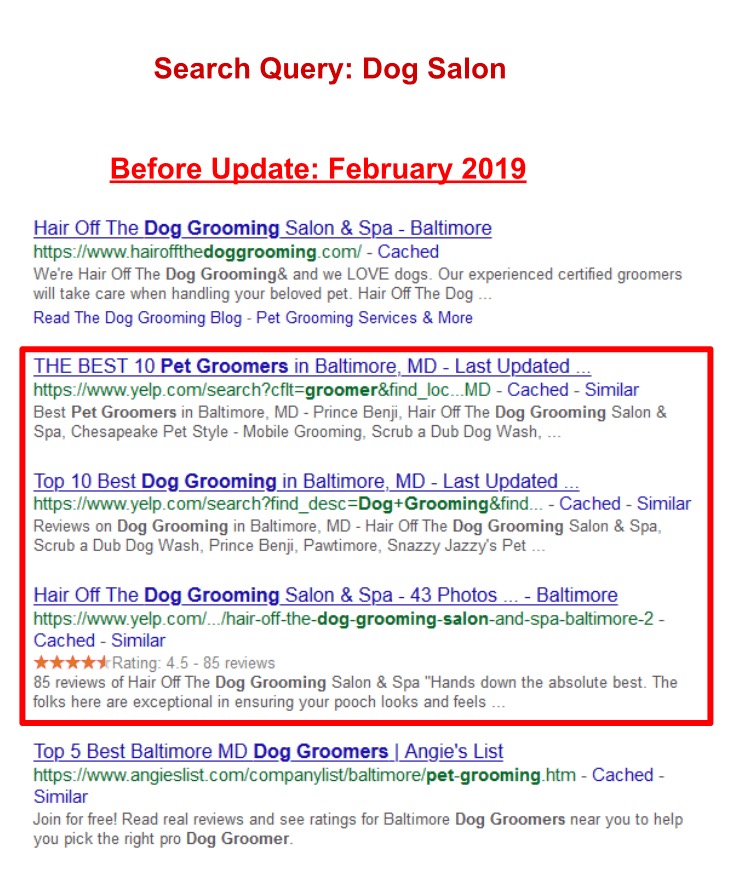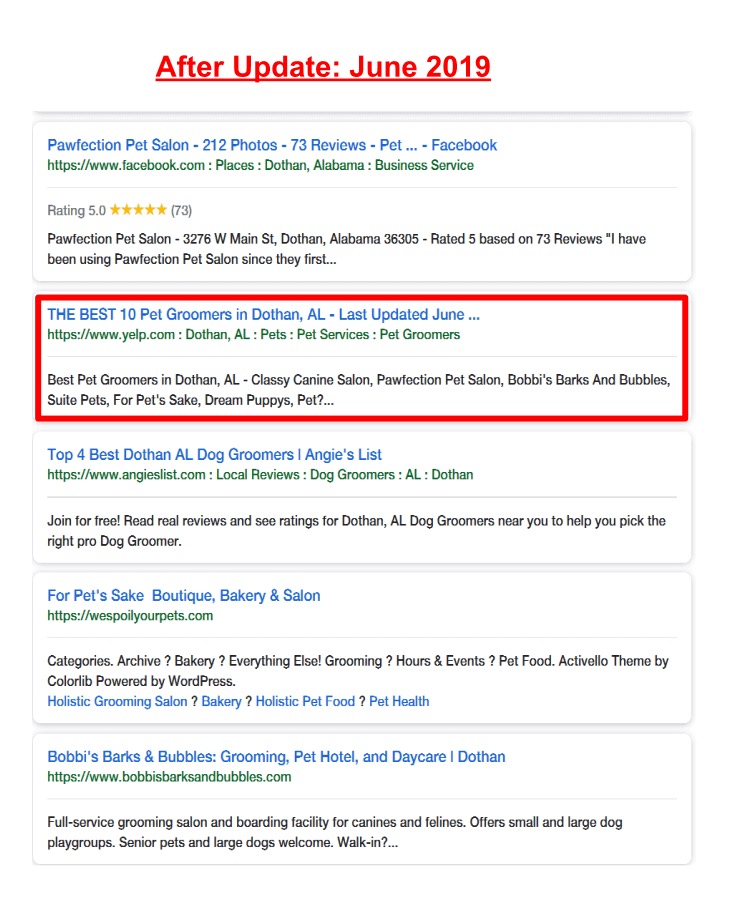Keyword cannibalisation is an SEO issue that affects almost every content-rich site on the web. It is more common on large sites where content has the risk of becoming repetitive or similar. However, it can also be an issue for smaller, niche sites if you’re not careful with the keywords you’re targeting. Therefore it is crucial to understand what is keyword cannibalisation and how you can fix it.
Over the last few years keyword cannibalisation has become more important than ever with the release of Google’s Diversity update. Since the update in June 2019, Google have updated their search results to show only a maximum of two results from the same domain (this includes sub-domains) for most search queries.
Take a look at this example:


In the past, multiple pages from your site could have ranked in the top positions for various search queries. Now, though, Google will select the most relevant page or two from a set of similar pages to show in the search results. This makes the whole issue of keyword cannibalisation more serious, as you wouldn’t want important pages on your site dropping down to position 100 or being completely de-indexed!
Using examples of keyword cannibalisation, this guide will explain everything you need to know about keyword cannibalisation, and how to fix it.